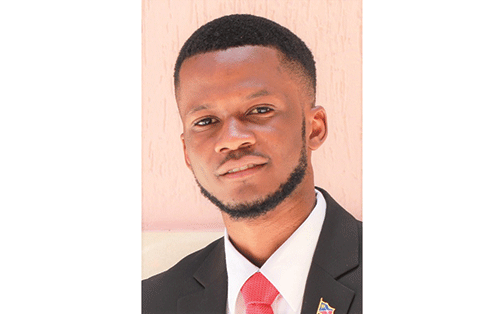Tio Erastus Nakasole
In primitive times as well as in the world of today, lacked the wherewithal of how nations can gain and divide wealth through production, distribution, and consumption of goods and services. Globally, if an ever-changing demand of humankind is to be met, is to revamp the system that they are subservient to.
On the other hand, if the architectural system through which the economic activities are taking place does not become obsolete, then this world could become a better place to live for everyone. Recently, due to the outcome being uneconomical to them, this drives them into a theatre of quagmire, pondering as to whether the problem is the system or the highest arbiter in the government through which the system operates.
The pro max thinkers of Karl Marx made human seems as mere tool and not able to influence the system. Contemporary, when so many countries are in squabble: poor, ill-fed, unequal, malnourished children on one side and observe multinationals investing millions in ad campaigns to market durables and luxuries which most cannot pay, it sheds lights clearly to revisit the systems.
Doctrine
To the economics and non-economics audience, looking at the world through the aquarium of the economic system within which they operate, may concur with me that it does not matter whether it is the hunters and gathers, subsistence farming, slavery, tribal ownership, feudalism, mercantilism, socialism, communism, or mixed economy as they are all man-made and can be reformed for better or worse.
An example is that of capitalism which was substituted by communism in 1917 in USSR, and communism was destroyed in 1989. In a similar way they were created, they can be destroyed and changed by certain salient features that created them.
Conundrum
Economist Joseph Stiglitz thought depression was a “water under the bridge” up until now when the unprecedented financial crisis of 2007 – 08 striked a scale that nobody anticipated or see it coming. Political scientists such as John Mearsheimer, shifted from the dinner table to a debate table trying to clear things up on the “coup d’état” between Russia and Ukraine, as well as the way forward. Earlier, the masquerade and massacre between Israel and Palestine remain unfathomable from the ICC.
Additionally, more tragedy is on the horizon when it comes to endless lives being lost on the Mediterranean Sea in search for green pasture and survival. Europe on the other side of the coin is pushing an order to send back all unauthorised migrants back to their home countries. This is an indication to say, that the system did not get dysfunctional by itself but due to the so-called “bourgeoisie syndrome” in every part of the system around the world. Ideally, the current economic system in every country demands and need an emergency of transformation to change the system for the better.
Dysfunctional
On a high note, the central problem of any economy revolves around one of the most important segments of human life that our resources are scarce to fulfil our unlimited wants. This translates into the fact, that every election that each citizen partakes in their national election is a ticket that they are looking for their survival. When resources are scarce, the majority end up voting with their stomach, and less vote with their mind. In the end, since the system is complex, a country’s economic system becomes the result of millions of human beings making millions of society’s choices every day.
Juxtaposition
When resources are scarce, this creates a trilemma for economic managers (Executive, Legislature & the Judiciary) who have to make a choice on behalf of the citizen from the set of alternatives.
Consecutively, to make those economic choices, as to what to produce, how much to produce, how to produce, when to produce and for whom to produce is met with an unethical foundation, unbridled pursuit of self-interest both in production, consumption, and distribution especially by the middle class, interest-based financial and monetary system and market forces propel micro enterprises.
Modern talks in Africa of Africa’s Continental free Trade Area are not a panacea in the long run when it comes to the welfare of the people. Undoubtedly, reducing trade barriers benefits consumers through range of competitive products in their best size.
However, this is not a situation where “if you pick up one end of the stick you also pick up the other”. This is because once the domestic producers become overcrowded in the market in a no trade barrier regime, consumers will lose jobs and their purchasing power will decrease subsequently. Therefore, in the long run, it merely becomes a zero-sum game and not a jubilee in a paradise of making a living.
Transformation
Regardless of the economic system, “less is better” if it is distributed equally than more wealth distributed unequally. Economic growth is important, but development is of paramount importance. Growth that does not yield to development is less desirable.
Therefore, reducing inequality is more important than increasing the growth rate. Optimally, social optimization is more important than profit optimization. In principle, the culmination of social optimisation cannot be brought through the private sector, it must be brought about through government intervention.
This requires ability for the lawmakers to comprehend their countries’ economic models and their role in supporting analysis of economic issues, in tandem an appreciation of their usefulness both at micro and macroeconomic levels.
All in all, it is worth highlighting the urgency for every government to revisit the fundamental postulates of the main driver of the economic system and identify the structural issues that require attention in the pursuit of economic revival in the short run and furtherance of millennium development goals in the long run.
*Tio Erastus Nakasole is a final MBA student at the NUST, a holder of an Honours degree in Economics. Currently serving as the Sales and Service Manager at HiFi Corporation Namibia. He can be reached on theoerastus@gmail.com.
The views expressed do not represent those of his employer.


